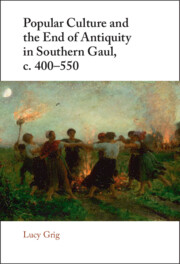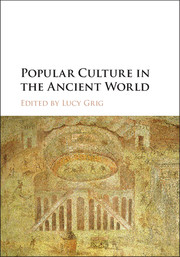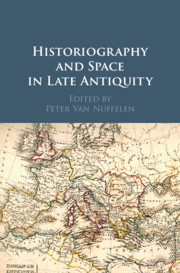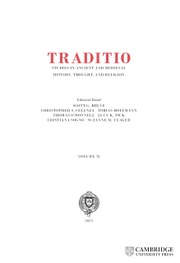Popular Culture and the End of Antiquity in Southern Gaul, c. 400–550
This book offers a new look at the transformation of the classical world in Late Antiquity. It focuses on a particular region, rich in both archaeological and literary evidence, and examines the social, cultural and religious history of late antique southern Gaul through the lens of popular culture. Using material culture, comparative and theoretical material alongside the often dominant normative and prescriptive texts produced by the late antique church, Lucy Grig shines a fresh light on the period. She explores city and countryside alike as contexts for late antique popular culture, and consider a range of case-studies, including the vibrant late antique festival of the Kalends of January. In this way important questions of continuity, change and historical agency are brought to the fore. This title is part of the Flip it Open Programme and may also be available Open Access. Check our website Cambridge Core for details.
- Employs the lens of popular culture to provide a fresh approach to the transformation of the Roman world in late antiquity
- Introduces theoretical and comparative models and materials which will be new to many students of the field
- Synthesizes archaeological and literary evidence to provide an accessible interdisciplinary account
Reviews & endorsements
‘Recommended.’ R. T. Ingoglia, CHOICE
‘… a well-researched book that delivers on all fronts. Scholars of popular culture, religion - both lived and preached - and the transformation from Roman to medieval cultural forms in late antiquity, will all benefit from reading this book.’ A. E. T. McLaughlin, Bryn Mawr Classical Review
‘… highly recommended as an excellent reference for anyone interested in the history of late antique Gaul and the broader cultural transformations of the later Roman Empire.’ Carlo Ferrari, H-Soz-Kult
Product details
March 2024Hardback
9781108491440
280 pages
235 × 158 × 21 mm
0.55kg
Available
Table of Contents
- 1. Introduction: popular culture and the study of (late) ancient history
- 2. Urban contexts for popular culture in an age of transformation
- 3. Popular culture, society and economy: the countryside in transition in late antiquity
- 4. Christianizing popular culture: the view 'from the pulpit'
- 5. An alternative view: lived religion as popular culture
- 6. The Kalends of January: the persistence of popular culture
- 7. Conclusions: popular culture and the end of antiquity?







.jpg)
.jpg)
